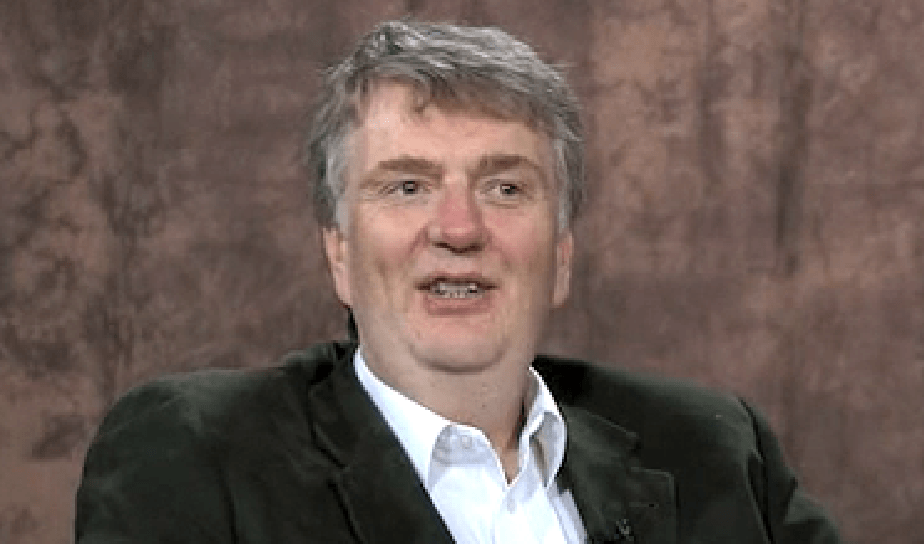Working as Citizens of God’s Kingdom (Matthew 1-4)
Bible Commentary / Produced by TOW Project
We live in what theologians call “the already, but not yet.” The kingdom of heaven has already been inaugurated by Jesus in his earthly ministry, but has not yet been fully realized—not until Christ returns in person as King. Meanwhile, our lives—including our work, our leisure, our worship, our joy, and our sorrows—are framed by the reality of living in a world partly controlled by the old, corrupt ways of the Fall (Genesis 3), yet partly ruled by its true Lord, Christ. As Christians, we put ourselves wholly under Jesus as Lord. Our habits on earth are now to reflect the coming kingdom of heaven. This is not to boast that we are more godly than others, but to accept the challenge of growing into God’s ways. God calls his people to many different roles and occupations on earth. In all these roles and occupations, we are to live out the true reality: the reign of God that is coming from heaven to earth.
A Balancing Act: Hans Hess’ Dilemma Whether or Not to Serve Sodas (Click to Watch) |
At the same time, we cannot escape the ills of the world brought on by the Fall, including death (1 Corinthians 15:15-26), sin (John 1:29), and Satan (Revelation 12:9). Jesus himself experienced terrible, though temporary, suffering at the hands of sinful men, and so may we. In our work, we may suffer greatly through forced labor, permanent unemployment, even work-related death. Or we may suffer in smaller ways as we deal with challenging coworkers, unpleasant working conditions, promotions deserved but not received, or a thousand other setbacks. Sometimes we suffer from the consequences of our own sin at work. Others may suffer much more than we, but all of us can learn from the Gospel of Matthew how to live as Christ-followers in a fallen world.
Jesus the Messiah (Matthew 1-2)
Back to Table of Contents Back to Table of ContentsHerod’s Disturbance (Click Here to Read)In this daily reflection from The High Calling, Mark Roberts writes about how, in contrast to Herod in Matthew 2, we can submit our daily life and work to the lordship of the King of Kings. |
The opening chapters of Matthew’s Gospel narrate in rapid-fire succession stories demonstrating that Jesus is the Lord whose coming inaugurates the kingdom of heaven on earth. They explain who Jesus is in terms of Scripture fulfilled (the Messiah) and show that his entrance into the world is the epicenter of all of God’s dealings with humanity. The Gospel of Matthew begins with a description of Jesus’ ancestry and birth: the baby in a Bethlehem manger is in the line of Israel’s great king, David, and is a true Hebrew, going back to Abraham (Matt. 1:1-2:23). With each story, Matthew’s references to the Old Testament Scriptures show how Jesus’ coming reflects a particular ancient text.[1] We listen to Jesus because he is God's anointed, the promised Messiah, God entering the world in human flesh (John 1:14).
Scientists Tell Their Stories: David Wilkinson (Click to Watch at the BioLogos Website) |
The story of the magi (or as the NRSV, translates it, “wise men”) is especially relevant to work. According to Daniel 1:20, 2:27, and 5:15 and Acts 8:9, and 13:6-8, magi were astrologers who observed the stars in order to interpret dreams and practice other magic. Both Daniel and Luke (in the book of Acts) take a dim view of their profession, seeing them as charlatans or false prophets. Nonetheless, going about their work of observing the stars, they glimpse the reality of God’s power in the world. Their work, flawed as it is, guides them to recognize Jesus as the son of God. Their response is to worship as best they are able. Note their generosity, a virtue God prizes highly throughout the Bible. Contrast them to Herod, who although being from the community of faith, reacts to the wise men’s discovery with hostility. It’s hard to imagine a more un-generous response than his. This contrast points out how God’s grace extends to all people and the entire cosmos, not only to believers. Conversely, the people of God continue to fall into sin, while non-believers morality may be exemplary.
Could it be that God is still drawing non-believers to himself through their work, including workers in science, nature, or the material world? As Paul puts it, “Ever since the creation of the world, God’s eternal power and divine nature, invisible though they are, have been understood and seen through the things he has made.” (Romans 1:20). This has applications when we talk about Christ in the workplace. Although we may think we are talking about Christ to people who don’t know him, it may actually be that God is already making himself known to them through their work, as he did with the magi. We might be more effective if we recognize that what we are actually doing is helping co-workers name and appreciate the presence of God that their work is already revealing to them. And we ourselves might do well to recognize God’s presence in our work. Christians often treat secular work with suspicion, as if the knowledge and skill employed there somehow undermines faith. Instead, what if we could recognize how all kinds of work reveal God’s handiwork and presence. Could recognizing God’s presence in ordinary work actually strengthen our faith?
For ideas on how churches can incorporate science in worship, see “Science and Faith in Harmony: Positive ways to include science in worship” from the Calvin Institute of Christian Worship.
Jesus Calls the Disciples (Matthew 3-4)
Back to Table of Contents Back to Table of ContentsNearly thirty years have elapsed between chapters two and three. John the Baptist reveals Jesus’ true identity as the Son of God to the crowds at the Jordan River (Matt. 3:17). Then Jesus, following his baptism by John, successfully withstands the temptations of the devil in the wilderness (Matt. 4:1-11) in contrast to Adam or the Israelites who had failed. (For more about the temptations of Jesus, see "Luke 4:1-13" in Luke and Work at www.theologyofwork.org.) In this, we preview the ancient roots of the coming kingdom: it is “Israel” as God originally intended it. And we see its revolutionary aspects; it brings victory over the prince of the fallen world.
Work is an essential element of God’s intent for the world. When God created Adam, he immediately gave him work to do (Genesis 2:15); throughout the Old Testament, God's people were also given work to do (Exodus 20:9). It should not surprise us that Jesus, too, was a laborer (Matt. 13:55). Jesus’ baptism, his wilderness temptations, and his prior work experience as a carpenter prepared him for the public work he would now begin (Matt. 4:12).
Here we encounter the first passage speaking directly to the question of calling. Soon after Jesus begins to preach the coming of the kingdom of heaven, he calls the first four of his disciples to follow him (Matt. 4:18-21). Others later respond to his call, making up the Twelve—the band of those called apart by Jesus to serve as his intimate students and the first servant-leaders for the renewed people of God (cf. Matthew 10:1-4; 19:28; Ephesians 2:19-21). Each of the Twelve is required to leave his former occupation, income, and relationships in order to travel with Jesus throughout Galilee. (The personal, family, and social sacrifices this required are discussed under "Mark 1:16-20" in Mark and Work at www.theologyofwork.org.) To these and other followers, Jesus holds out no hope of security or family ties. When Jesus later calls the tax collector Matthew, the implication is that Matthew will give up his work of tax collecting (Matt. 9:9).[1]
Does a call from Jesus mean that we have to stop working at our current job and become a preacher, pastor, or missionary? Is this passage teaching us that discipleship means abandoning nets and boats, saws and chisels, payrolls and profits?
The answer is no. This passage describes what happened to four men by the Sea of Galilee that day. But it does not prescribe the same thing for every follower of Jesus Christ. For the Twelve, following Jesus did mean leaving their professions and their families in order to itinerate with their roving master. Both then and now, there are professions that require similar sacrifices, including military service, sea trade, or diplomacy, among many others. At the same time, we know that even during Jesus’ earthly ministry not all true believers in him quit their day jobs to follow him. He had many followers who remained in their homes and occupations. Often he made use of their ability to provide meals, lodging, and financial support for him and his companions (e.g., Simon the Leper in Mark 14:3, or Mary, Martha, and Lazarus in Luke 10:38, John 12:1-2). Often, they gave him entry to their local communities, which is something his traveling companions could not have done. Interestingly, Zacchaeus was also a tax collector (Luke 19:1-10), and although his life as a tax collector was transformed by Jesus, we see no evidence that he was called to leave the profession.
But this passage also leads us to a deeper truth about our work and following Christ. We may not have to give up our jobs, but we have to give up allegiance to ourselves or to anyone or any system contrary to God's purposes. In a sense, we become double agents for God's kingdom. We may remain in our workplace. We may perform the same tasks. But now we employ our work to serve the new kingdom and our new master. We still work to bring home a paycheck, but at a deeper level we also work to serve people, as our master did. When you serve people because of your allegiance to Christ, “you serve the Lord Christ,” as Paul puts it (Colossians 3:24).
This is more radical than it may first appear. We are challenged in the work we do. To the extent possible, we should seek to do those things that bring human flourishing, either through our part in carrying on the creation mandate, or our part in carrying out the redemption mandate. In short, we do those things that support people’s dreams and bring healing to the brokenness around us.
So we see that although a call from Jesus may or not change what we do for a living, it always changes why we work. As followers of Jesus, we work above all to serve him. In turn, this leads to a change in how we work, and especially how we treat other people. The ways of the new King include compassion, justice, truth, and mercy; the ways of the old prince of this world are devastation, apathy, oppression, deceit, and vindictiveness. The latter can no longer have any role in our work. This is more challenging than it may appear, and we could never hope to do so on our own. The practices required to live and work in these new ways can arise only from God’s power or blessing in our work, as will emerge in chapters 5 through 7.









